Introduction to Oily Skin
Oily skin is a common skin type characterized by an overproduction of sebum, the skin’s natural oil. While sebum is essential for maintaining healthy and hydrated skin, an excess can lead to a shiny complexion and increased susceptibility to blemishes, blackheads, and acne. Understanding oily skin, its prevalence, and its specific needs are crucial for developing an effective skincare routine.
Individuals with oily skin often experience challenges in controlling shine and maintaining a matte appearance throughout the day. This skin type is typified by larger pores and can be prone to frequent outbreaks due to clogged pores filled with oil and dead skin cells. Various factors contribute to oily skin, including genetics, hormonal fluctuations, humidity, and diet.
It is important to note that oily skin is not universally negative. The natural oil produced by the sebaceous glands helps protect the skin and maintain its elasticity. People with oily skin often find that they are less prone to wrinkles and fine lines since their skin stays naturally moisturized. The key to managing oily skin lies in understanding its unique characteristics and addressing its needs without stripping away the essential oils that benefit the skin.
Recognizing the commonality of oily skin, it becomes clear why effective skincare tailored to this skin type is in high demand. A significant portion of the population, especially teenagers and young adults, experience varying degrees of oily skin at some point in their lives. Catering to this demographic with appropriate skincare solutions ensures skin health and enhances overall confidence.
By gaining a deeper insight into oily skin, individuals can better navigate the myriad of skincare products and routines available. This foundational knowledge equips them to make informed decisions that support their skin’s health and appearance, paving the way for a balanced, clear complexion. This blog post aims to provide that understanding, delving into the needs of oily skin and the essential ingredients to look for in skincare products.
Characteristics of Oily Skin
Oily skin possesses distinct physical and sensory traits that make it unique from other skin types. One of the most noticeable characteristics is a persistent shine, which results from the overproduction of sebum. This natural oil, while essential for maintaining skin hydration, can create an unappealing greasy appearance, particularly in the T-zone area comprising the forehead, nose, and chin.
Another prominent feature of oily skin is enlarged pores. These dilated openings often appear more visible due to the excessive sebum and dead skin cells that can accumulate within them, leading to congestion. This, in turn, establishes a fertile ground for acne, blackheads, and whiteheads. Individuals with oily skin are therefore prone to experiencing frequent breakouts, which can be exacerbated by environmental stressors and hormonal fluctuations.
The frequent occurrence of acne and other blemishes is a hallmark of oily skin. The combination of excess oil and clogged pores provides an ideal environment for bacteria to thrive, resulting in various forms of acne, from small comedones to more inflamed papules and cysts. Descriptive sensory clues, such as a greasy or slick tactile sensation, also help delineate oily skin. This characteristic can often make makeup application challenging, as products tend to wear off more quickly compared to other skin types.
In summary, oily skin is defined by a persistent shine, visibly enlarged pores, and a heightened susceptibility to acne and blackheads. Understanding these traits allows individuals to identify if they might have oily skin, helping guide them towards appropriate skincare routines and products tailored to manage sebum production and maintain a balanced complexion.
Oily skin is a common condition characterized by an overproduction of sebum, the natural oil produced by the sebaceous glands. Understanding the causes of oily skin requires a look into several contributing factors, including genetic predispositions, hormonal changes, and environmental influences.
Genetics play a crucial role in the likelihood of developing oily skin. If your parents or immediate family members have oily skin, you are more likely to experience the same condition. This is because the regulation of sebum production is, in part, inherited and can be influenced by the number and activity of sebaceous glands present on your skin.
Hormonal fluctuations are another significant contributor. During periods of hormonal changes, such as puberty, pregnancy, or during menstrual cycles, the body can produce an excess of androgen hormones. These hormones stimulate the sebaceous glands to produce more oil, leading to an oilier complexion. This is why adolescents and young adults are particularly prone to oily skin, but it can affect people at any age.
Environmental factors also play a pivotal role. Hot and humid climates can exacerbate the production of sebum, making oily skin more prominent. Similarly, exposure to pollution and certain chemicals can irritate the skin and prompt the sebaceous glands to produce more oil as a defensive mechanism. On the other hand, using harsh skincare products or over-cleansing can strip the skin of its natural oils, prompting it to produce even more oil to compensate.
Diet and lifestyle choices further influence sebum production. A diet high in refined sugars and carbohydrates can lead to an increase in insulin levels, which in turn can boost sebum production. Additionally, stress and lack of sleep have been linked to increased sebum production through the stimulation of androgen hormones.
In essence, the causes of oily skin are multifaceted and include a combination of genetic, hormonal, environmental, and lifestyle factors. Understanding these can aid in identifying proper skincare routines and treatments tailored to manage oily skin effectively.
Common Issues Associated with Oily Skin
Oily skin, while providing some benefits such as slower aging, is often prone to a range of common dermatological issues. One of the most prevalent problems individuals with oily skin face is acne. Acne occurs when excess sebum produced by the sebaceous glands combines with dead skin cells and clogs the pores. These clogged pores can then become inflamed, resulting in pimples, whiteheads, and cysts. The overproduction of sebum creates an ideal environment for the bacteria Propionibacterium acnes, which leads to further inflammation and breakouts.
Clogged pores are another significant concern for those with oily skin. The abundance of sebum means that pores are more likely to be obstructed by oil, dead skin cells, and other debris. When pores become clogged, they can appear enlarged, which exacerbates the problem as they trap even more oil and bacteria. The constant cycle of clogged and inflamed pores can make skincare a challenging task for individuals with oily skin.
Blackheads are also a frequent issue associated with oily skin. They form similarly to acne, through the clogging of pores by oil and dead skin cells. However, the difference lies in the oxidation process. When the clogged material is exposed to air, it oxidizes and turns black, resulting in blackheads. These tiny black spots can blanket the nose, chin, and forehead, making the skin appear uneven and textured.
The difficulties posed by oily skin are amplified by environmental factors and lifestyle choices. Humidity, diet, and even stress can increase oil production, exacerbating these skin issues. Understanding the root causes and addressing the unique needs of oily skin, such as through the use of oil-balancing ingredients and proper cleansing routines, can help mitigate these common problems. Tailored skincare regimens are essential to manage the complexities of oily skin effectively.
The Needs of Oily Skin
Oily skin requires a tailored approach to maintain its balance and health. Key to addressing oily skin concerns is recognizing its unique needs, beginning with proper cleansing. Regular cleansing is essential to remove excess oil and prevent clogged pores, which can lead to acne breakouts. However, it’s crucial to avoid harsh cleansers that strip the skin of its natural moisture barrier. Selecting a gentle, oil-free, and non-comedogenic cleanser can help in maintaining this balance.
Equally important is the role of moisturizing. Contrary to common belief, oily skin needs hydration. Skipping this step can lead to overproduction of sebum as the skin attempts to compensate for perceived dryness. Opting for lightweight, water-based, or gel-based moisturizers can provide necessary hydration without adding excess oil.
Another significant aspect is oil control. Proper management of oil production can be achieved through the use of oil-free and mattifying products. Ingredients such as salicylic acid, niacinamide, and clay can be beneficial. Salicylic acid penetrates the pores to reduce oil build-up, while niacinamide helps regulate sebum production. Clay masks can draw out impurities and absorb excess oils, providing a smoother complexion.
Moreover, protecting oily skin from environmental stressors is vital. Daily application of a broad-spectrum sunscreen, even for oily skin types, is non-negotiable. Choosing a sunscreen with a matte finish and non-oily formula can prevent an overly shiny appearance and ensure skin remains protected from harmful UV rays.
Effective oily skin care revolves around maintaining a delicate balance. Proper cleansing, adequate moisturizing, and diligent protection, with a focus on oil control, collectively support the needs of oily skin, fostering a healthier, more balanced appearance.
Key Ingredients for Oily Skin
Understanding the right ingredients for oily skin care can significantly enhance one’s skincare routine. Each ingredient plays a distinct role in managing the unique challenges posed by oily skin, such as excessive sebum production and clogged pores. Here, we explore some of the key ingredients beneficial for oily skin.
Salicylic Acid: This beta hydroxy acid (BHA) is celebrated for its ability to penetrate oily skin and exfoliate deep within the pores. By dissolving excess sebum and removing dead skin cells, salicylic acid helps prevent and treat acne, making it a staple in many products designed for oily skin.
Benzoyl Peroxide: Known for its antibacterial properties, benzoyl peroxide effectively targets and eliminates acne-causing bacteria. Additionally, it helps to clear out blocked pores and reduce inflammation, making it an essential ingredient in managing acne-prone, oily skin.
Clay: Ingredients like kaolin and bentonite clay are known for their excellent oil-absorbing properties. These clays draw out impurities and excess sebum from the skin, helping to keep the skin matte and clear. Regular use in masks can prevent the onset of clogged pores and blemishes.
Niacinamide: Also known as Vitamin B3, niacinamide offers multiple benefits for oily skin. It regulates oil production, reduces inflammation, and enhances the skin barrier function. Moreover, it helps in lightening dark spots and evening out the skin tone, which are common issues for those with oily skin.
Hyaluronic Acid: Contrary to the popular belief that oily skin doesn’t need hydration, hyaluronic acid is crucial. This ingredient is a powerful humectant, meaning it attracts moisture to the skin without adding oil. This helps in balancing the skin’s hydration levels, ensuring it remains plump and healthy without contributing to excess oiliness.
Integrating these ingredients into your skincare routine can make a substantial difference in managing oily skin. By selecting products that contain these key components, one can achieve a more balanced, clear, and healthy complexion.
Daily Skincare Routine for Oily Skin
A structured daily skincare routine is essential for managing oily skin effectively. Ensuring that each step targets the specific needs of this skin type can help maintain a healthy and balanced complexion. The following routine offers a comprehensive approach to caring for oily skin.
Cleansing
The first and most crucial step in any skincare routine, particularly for oily skin, is cleansing. Choose a gentle, sulfate-free cleanser that removes excess sebum and impurities without stripping the skin of its natural oils. Look for ingredients such as salicylic acid or benzoyl peroxide, which help in managing oil production and preventing breakouts. It is advisable to cleanse twice daily, once in the morning and once before bed, to keep your skin clean and clear.
Toning
Toning aids in further cleansing the skin and tightening pores. Opt for an alcohol-free toner with ingredients like witch hazel or tea tree oil which help to balance oil production and soothe the skin. Toning twice a day, after cleansing, can help maintain the skin’s pH balance while minimizing the appearance of pores.
Moisturizing
Contrary to common belief, oily skin still requires proper hydration. Select a lightweight, oil-free moisturizer that provides adequate hydration without contributing to greasiness. Ingredients like hyaluronic acid are excellent as they offer hydration without clogging pores. Apply moisturizer twice daily to keep the skin supple and hydrated while controlling excess oil.
Sun Protection
Sun protection is a non-negotiable step in any skincare regimen. Choose a broad-spectrum, oil-free sunscreen with SPF 30 or higher to protect your skin from harmful UV rays. Gel-based or mattifying sunscreens are particularly effective for oily skin as they prevent excess shine and maintain a matte finish.
Implementing these steps consistently in your daily skincare routine can help manage oily skin effectively, reduce breakouts, and promote a healthier complexion. Selecting products tailored to address specific oily skin concerns is crucial for achieving and maintaining balance and clarity.
Final Tips and Recommendations
Managing oily skin effectively requires a holistic approach that goes beyond just skincare products. While it’s crucial to select the right cleansers, toners, and moisturizers specifically formulated for oily skin, lifestyle changes and consistent habits play an equally significant role in controlling excess oil production.
First, consider incorporating a balanced diet into your daily routine. High-glycemic foods and dairy products can sometimes exacerbate sebum production, leading to oilier skin. Opting for foods rich in omega-3 fatty acids, such as salmon and walnuts, and incorporating plenty of fruits and vegetables can promote overall skin health and help regulate oiliness. Staying well-hydrated is also essential, as it aids in maintaining the skin’s natural barrier and prevents it from becoming overly oily as a compensatory mechanism.
Exercise is another valuable component. Regular physical activity improves blood circulation, which can promote healthier skin. Furthermore, it helps in managing stress levels, which are known to trigger an increase in oil production. Make sure to cleanse your face thoroughly before and after exercising to prevent clogged pores and breakouts.
In terms of skincare habits, consistency is key. Establishing a daily routine that includes gentle cleansing, toning, and moisturizing can help keep oily skin under control. Exfoliating 1-2 times a week is beneficial, but over-exfoliating can strip the skin of its natural oils, causing it to produce even more oil. Additionally, using non-comedogenic products ensures that your pores remain unclogged, reducing the likelihood of acne and blemishes.
Patience is a critical factor when managing oily skin. Results may not be immediate, and it might take several weeks or even months to notice significant improvements. Sticking to your skincare routine and making mindful lifestyle choices will ultimately lead to healthier, more balanced skin.
By integrating these tips and recommendations into your daily life, you can create a well-rounded approach to managing oily skin. Remember, consistency and patience are your best allies in achieving a balanced complexion.

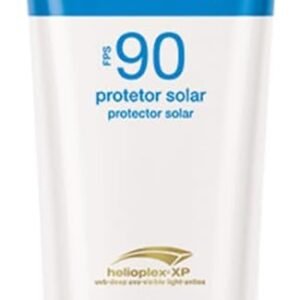
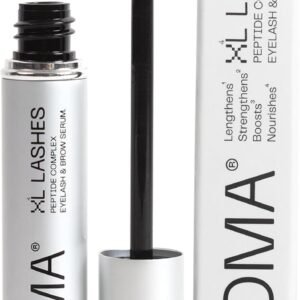
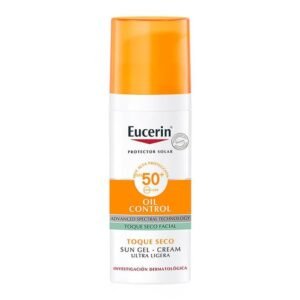
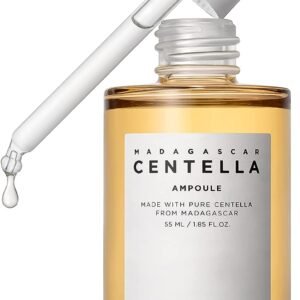
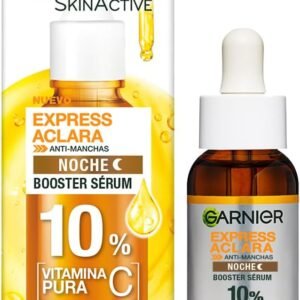
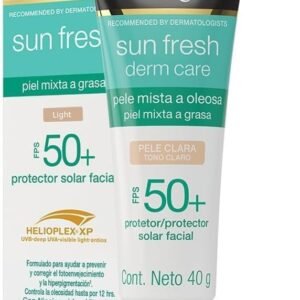
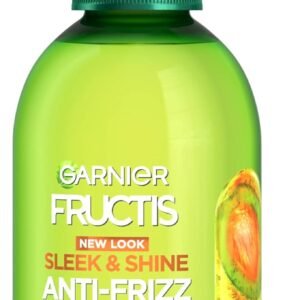
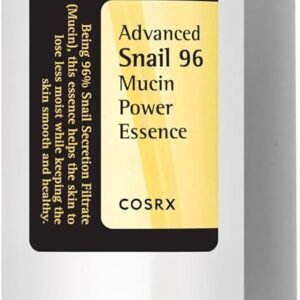
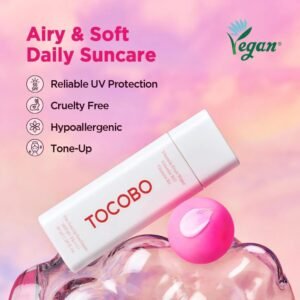
бизнесы https://biznes-idei12.ru/ .